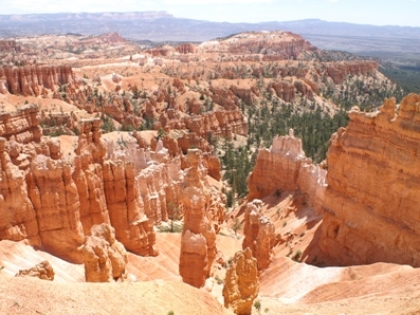I set out, last week, to write a post on the death of Henry Worsley–a 55-year old retired British Army officer who was attempting to be the first person to cross Antarctica alone and unaided. An ill and exhausted Worsley gave up the quest a mere 30 miles from his goal, after a journey of 913 miles over 71 days. He was airlifted to a hospital in Punta Arenas, Chile, where doctors discovered he was suffering from bacterial peritonitis (infection of the lining of the abdominal cavity). Despite undergoing emergency surgery, Worsley died soon afterward.
On the one hand, Worsley’s fatal attempt underscores two things: first, that there are still adventure “firsts” still out there to be conquered, and second, that the risks of those adventures are still very, very real. But also noteworthy in Worsley’s saga is that at the beginning of January, he stopped at the Amundsen-Scott research station at the South Pole, where he could have gotten medical supplies or treatment, or other supplies.
Because Worsley wanted to preserve the “unaided” part of his trans-Antarctic quest, however, he intentionally refrained from taking any kind of assistance. (The first trans-Antarctic crossing was accomplished in 1957-58, Norwegian Borge Ousland successfully crossed it solo and unaided in 1997, but used a kite to help pull his sledge, and in 2012, a meteorologist named Felicity Aston successfully skied, solo, across Antarctica (like Worsley was attempting to do), but received two supply drops along the way.)
It’s impossible to know whether, had Worsley taken some assistance or been evaluated there, he might have survived, or even finished his quest. But having help available and turning it down does complicate how one views or classifies Worsley’s endeavor.
Clearly, Henry Worsley was a passionate historian and seeker of adventure. He was passionate almost to obsession about Antarctic explorers from the early 20th century, and he linked all three of his own Antarctic expeditions to either re-creating or finishing tasks the original explorers failed to accomplish. This last journey was, ostensibly, to complete Ernest Shackleton’s aborted attempt to cross Antarctica in 1915-16–an expedition that became famous, instead, for the survival of the crew in a harrowing open-water journey after their main ship got caught in ice and sank.
Lord knows I’m all for passion-inspired adventures. So from that perspective, an appraisal of Worsley’s journey is pretty straightforward. He had a passion, and he pursued it despite the risks and discomfort involved–which in the case of Antarctica, are both pretty extreme. (For anyone with romantic notions to the contrary, I recommend Admiral Richard Byrd’s autobiographical Alone–a tale of his awful, aborted attempt to winter by himself in an Antarctic outpost in 1937.) Tragically–as is the case with many extreme adventure quests–Worsley’s attempt cost him his life.
But was Worsley also an explorer, as many news outlets have labeled him? And was his quest heroic? Or was it a tragic example of someone wanting a “first” so badly that he pushed too hard and died in the attempt, leaving a family bereft?
That’s where it gets sticky, even though I’ve written about “what constitutes exploration” before on this site (two recent examples are here and here). But as I was wrestling with those thornier questions, I came across two excellent essays that did a better job of answering them, with relation to Henry Worsley, than I probably could have.
The first essay was written by an adventure writer for whom I have profound respect–David Roberts. (I’ve written about him and his writing on this site before … I highly recommend his: On the Ridge Between Life and Death: A Climbing Life Re-Examined, and his collection of essays: Escape Routes.) Roberts is also a bona fide “new lands” explorer, having explored several previously unclimbed peaks in the Brooks Range mountains in Alaska. In a New York Times essay, Roberts evaluates not only Worsley’s quest, but also some of the other places on the planet where opportunities for physical exploration still exist.
The second essay is by a New Zealand journalist named Finlay MacDonald–who has been to Antarctica himself. It’s a short radio piece, but an excellent discussion of the difference between those historic attempts and modern-day attempts at recapturing or re-creating those “glory” days of heroic exploration.
Thought-provoking and well worth reading–both of them!





